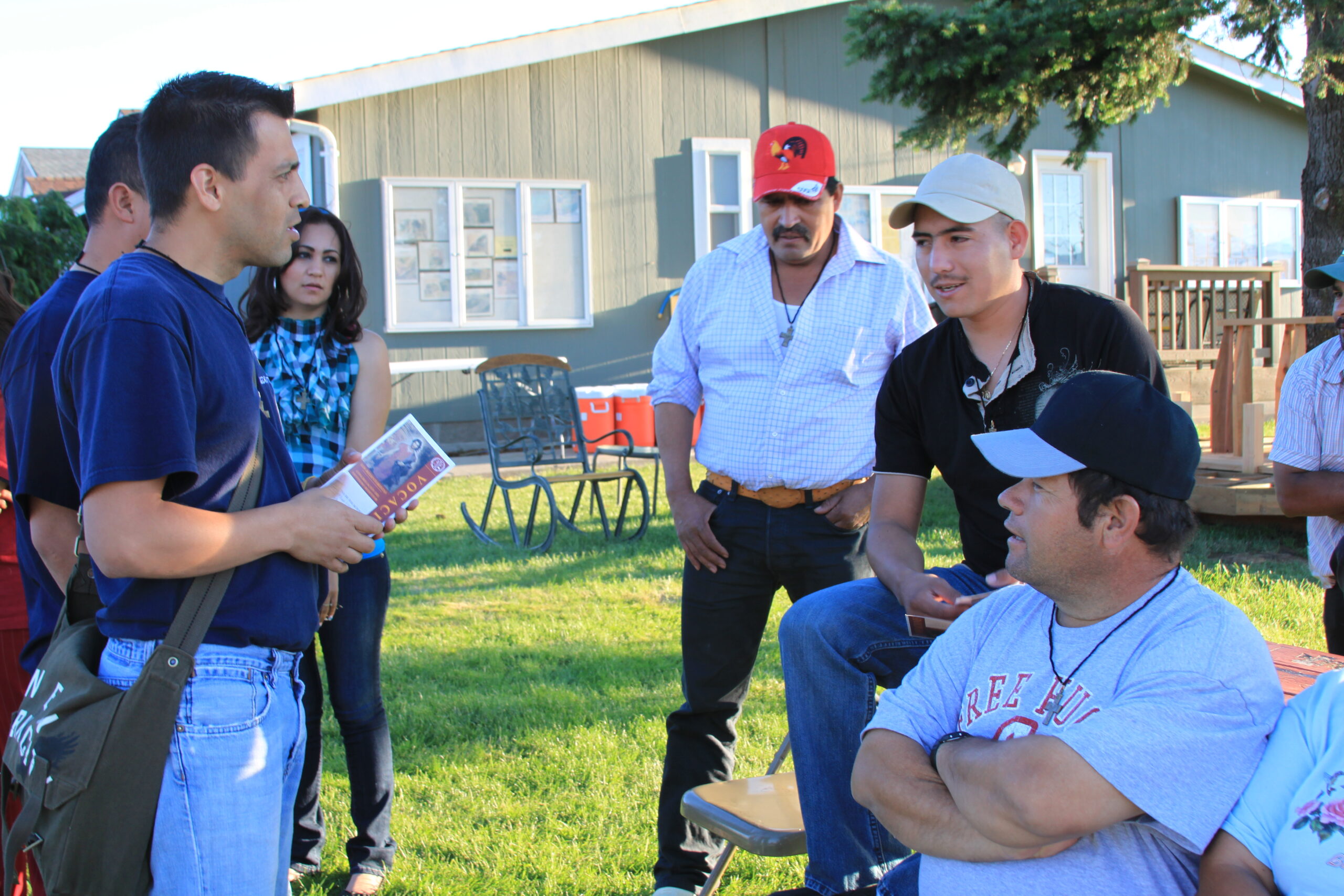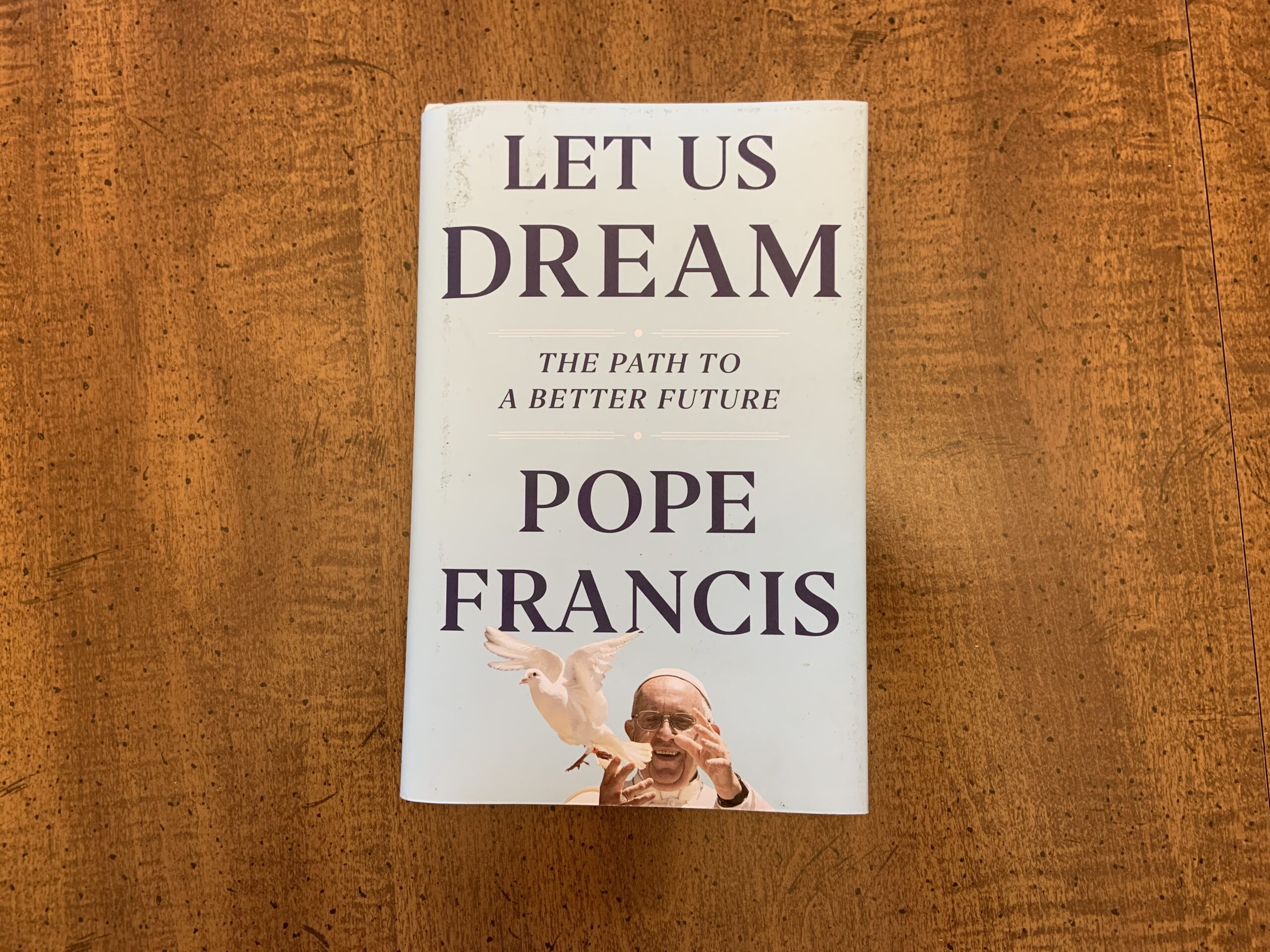Evangelization 2021: Una entrevista como ministerio – Helping parents teach their children
Una entrevista como ministerio
El Plan Pastoral para el Ministerio Hispano ofrece un método sencillo pero profundo para nuestro ministerio. Es VER, JUZGAR y ACTUAR. Estos principios funcionan bien para guiar todo el ministerio. La parte crucial es VER. Necesitamos conocer las necesidades y la urgencia de una situación. Jesús dio una instrucción sencilla a sus apóstoles. Debían: hacer discípulos de todas las naciones, bautizarlos y enseñarles. Los Apóstoles siguieron el ejemplo de Jesús, recordando cómo respondió a los ciegos, los cojos, los sordos, los leprosos, el afligido Jairo y el pecador. Respondieron con el amor de Dios y la misericordia. Jesús mostró la gracia de Dios en cada momento.
Jesús prestó atención personal a las personas que buscaban su ayuda. Cuando una mujer tocó para curar una hemorragia, preguntó: “¿Quién me tocó?” Los Apóstoles vieron a la multitud y pensaron que su pregunta era extraña. Cuando la mujer se adelantó, Jesús le aseguró su fe y su bendición. La relación de Jesús con los que buscaban la gracia era personal.
Cuando un trabajador agrícola migrante dijo: “Necesitamos que seas nuestro sacerdote”, comencé a buscar mejores formas de hacer que el ministerio sea personal en lugar de oficial. Al ofrecer una misión a los trabajadores agrícolas migrantes, mi equipo de misión vio deficiencias al pedir a las personas que llenaran los formularios de inscripción para nuestras clases de Primera Comunión y Confirmación. Una experiencia de registro de una familia nos enseñó la importancia de llenar nuestros formularios de registro mediante una entrevista en la que escuchamos a las personas contarnos sobre sus vidas mientras recibíamos la información necesaria para los registros de la iglesia.
Al inscribir a cinco niños de una familia en nuestras clases, un misionero laico descubrió la importancia de entrevistar a los candidatos para los sacramentos. En una casa de migrantes, el misionero conoció a una madre y cinco hijos de entre diez y veinte años. Dos adolescentes pidieron registrarse para la Confirmación y Primera Comunión. El misionero, mientras obtenía la información de la segunda hija, fue interrumpido por otra de los hermanas que quería registrarse también. Inmediatamente un el cuarto hijo también quiso ingresar a las clases. Después de que los cuatro se registraron, le dijeron al hermano mayor: “Ven, únete a nosotros”. Hacer las preguntas de los hermanos delante de los demás fue en sí mismo evangelizador. Durante las clases, esa familia estaba más comprometida que otras ya que cada uno se dedicó a tomar la decisión de recibir los sacramentos.
Dos reflexiones especiales sobre esa familia:
- Los hermanos se inscribieron personalmente. Eran trilingües ya que la madre hablaba un dialecto indígena y el español limitado. Observó la emoción de sus hijos por recibir los sacramentos y estaba encantada. Nos preguntamos por qué tantos niños en una familia fiel no habían recibido los sacramentos después de ser bautizados, pero las habilidades limitadas en el lenguaje contribuyeron a que esta familia fuera marginada en las parroquias aquí.
- Cada niño nació y fue bautizado en diferentes pueblos e iglesias. La movilidad constante de la familia contribuyó a la marginación de la familia.
Al abogar por un proceso de entrevistas para el registro sacramental, reconozco a los directores de educación religiosa por temor a que el proceso de entrevistas pueda ser abrumador. He descubierto que vale la pena el esfuerzo de entrevistar a la gente. El encuentro está bendecido. En el encuentro, encontramos a Jesús.
(Martes: Entrevista para registro parroquial)
(Miércoles: Descubriendo talentos para el ministerio entre los fieles)
(Jueves: Ambiente seguro y entrevista)
An Interview as Ministry
The Pastoral Plan for Hispanic Ministry offers a simple but profound method for our ministry. It is VER, JUZGAR y ACTUAR (SEE, JUDGE, ACT). These principles work well in guiding all ministry. The crucial part is VER (SEE). We need to know the needs and the urgency of a situation. Jesus gave a simple instruction to his Apostles. They were to: make disciples of all nations, baptize them and teach them. The Apostles followed the lead of Jesus, remembering how he responded to the blind, the lame, the deaf, the leper, the grieving Jairus, and the sinner. They responded with the love of God and mercy. Jesus showed the grace of God in the moment.
Jesus paid personal attention to persons seeking his aid. When a woman touched for healing of hemorrhages, he asked, “Who touched me?” The Apostles saw the crowd and thought his question was odd. When the woman came forward, Jesus assured her of her faith and blessing. The relationship of Jesus with those seeking grace was personal.
When a migrant farm worker said, “We need you to be our priest,” I began looking for better ways of making ministry personal rather than official. When offering a mission to migrant farm workers, my mission team saw shortcomings in asking people to fill out registration forms for our First Communion and Confirmation classes. An experience registering a family taught us the importance of filling our our registration forms by an interview where we listened to people tell us about their lives as we received the information necessary for church records of sacramental reception.
While registering five children from one family for our classes, a lay missionary discovered the importance of interviewing candidates for sacraments. In one migrant housing unit, the missionary met a mother and five children between ten and twenty years old. Two teenaged children asked to register for Confirmation and First Communion. The missionary, while getting the information of the second child was interrupted by another of the siblings wanting to register also. Immediately a fourth child also wanted to enter the classes. After the four registered, they told the oldest brother, “Come on, join with us.” Asking the questions of the siblings in front of the others was in itself evangelizing. During the classes, that family was more engaged than others as each one invested themselves in the decision to receive the sacraments.
Two special reflections on that family:
- The siblings registered themselves. They were tri-lingual as the mother spoke an indigenous dialect and limited Spanish. She watched the excitement of her children to receive the sacraments and was delighted. We wondered about why so many children in a faithful family had not received sacraments after being baptized, but limited skills in language contributed to this family being marginalized in parishes here.
- Each child was born and baptized in different towns and churches. The constant mobility of the family contributed to the marginalization of the family.
When advocating an interview process for sacramental registration, I recognize religious education directors fearing that the interview process could be overwhelming. I have found that interviewing people is worth the effort. The encounter is blessed. In the encounter, we meet Jesus.
(Tuesday: Interview for parish registration)
(Wednesday: Discovering talents for ministry in the faithful)
(Thursday: Safe environment and the interview)




